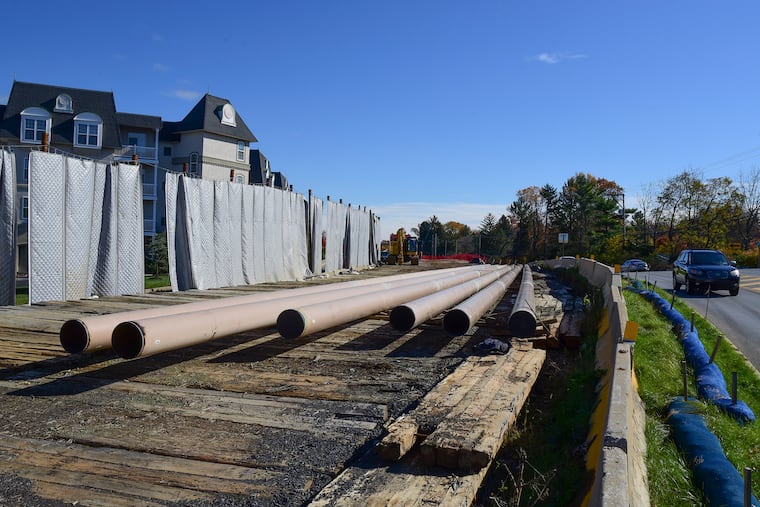How many violations will be enough for Gov. Wolf to pull the plug on Mariner East? | Editorial
The project has been riddled with violations since construction started in 2017.

The Mariner East project is a test for Pennsylvania: Who has control, the commonwealth or an international multibillion-dollar corporation?
Sunoco’s Mariner East pipeline system spans 350 miles and 17 counties. The aim is to carry natural gas liquids from fracking areas in eastern Ohio and Western Pennsylvania to Marcus Hook, Delaware County, to be processed and exported. The pipeline’s route crosses through residential areas, near people’s homes — a scary prospect considering that natural gas is volatile and explosive. Case in point: In 2018, the Revolution pipeline, also operated by Sunoco, exploded in Beaver County after being in service just a week, killing animals and forcing residents to evacuate.
» READ MORE: Sunoco failed to disclose some risks of Mariner East pipeline, was ‘negligent’ in response to concerns, judge rules
There is little reason for residents living close to Mariner East to feel confident this pipeline is safer. It has been riddled with violations since construction started in 2017. The state Department of Environmental Protection’s website lists 120 violation notices issued to Sunoco for this project, most for spills of drilling fluids that include unknown chemicals. Some spills were in residential areas, and others in areas designated as “exceptional value wetland.” The project also led to sinkholes on residential properties and cracks in a highway.
Amid these risks, Sunoco has been less than candid with Pennsylvanians. A Public Utility Commission administrative law judge ruled in late April that the company failed to disclose the risks posed by a potential leak or rupture and was “intentional” and “negligent” in response to local concerns — issues raised in a Spotlight PA investigation into emergency plans around the pipeline published last fall.
In a statement to this board, a Sunoco spokesperson said: “We are committed to safely completing construction of the Mariner East pipeline system while adhering to our permits and maintaining a focus on the safety of the environment, our people, and the communities through which we pass.”
» READ MORE: Sunoco floats Mariner East 2 pipeline reroute plan to avoid more Marsh Creek Lake spills
Yet those assurances have a hard time competing with the project’s track record.
A PUC judge found Sunoco negligent. The FBI launched an investigation into the state’s approval of the project, specifically whether Wolf administration officials pushed DEP staff to ignore shortcomings and approve construction permits. Attorney General Josh Shapiro and Delaware County are also investigating allegations of criminal misconduct related to Mariner East. Chester County’s district attorney put Sunoco on notice in court via a consent decree this year. State Sen. Katie Muth — whose district includes Marsh Creek Lake, a drinking-water reservoir contaminated with thousands of gallons of drilling fluid from the project — called on the DEP to pull Mariner East permits. The DEP itself acknowledged that trusting Sunoco “has come back to bite us on numerous occasions.”
Sunoco has absorbed the millions in fines, violations, and remedy plans as the cost of doing business. Currently it doesn’t look as if Pennsylvania has control over a project that could have detrimental effects for large swaths of the commonwealth. If it is not time to pull the plug on Mariner East now, the minimum that Gov. Wolf’s administration should do is articulate his red line: How many reported spills, contaminated water sources, and sinkholes are too much? As risks mount, this answer is paramount to the safety of Pennsylvanians.